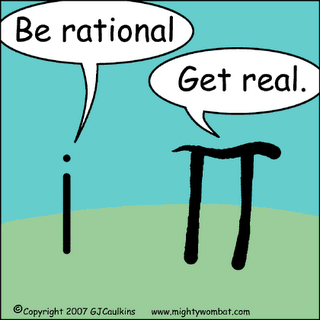
In one of my Reason Rally posts, I talked about why atheists feel such an urgent need to change other people’s beliefs. If false beliefs aren’t generally accepted, it’s easier to catch and help people before they take dangerous action based on their incorrect views of the world. (The example was a woman who cut her son’s throat because she believed he was possessed). Iota had a good follow-up question in the comments:
[Is it] reasonable to expect that, simply by ousting religion/theism*, you permanently increase people’s “rationality”. Or do you, instead get people who believe in Area 51 experiments, New Age energy, homeopathy, the eugenic imperative and other stuff (possibly not invented yet), just without the God bits…?
After all, atheism being just the proposition that there is no God ( = there are no gods), a person who specifically doesn’t believe in a God/gods, but is a member of an UFO cult would be an atheist (since they don’t believe in gods, just in aliens). Or am I missing something?
If you think you permanently get more rationality simply be decreasing theism (i.e. specifically belief in God/gods), could you explain why?
I still really like Greta Christina’s take on this question: we’re overrating atheism as a proxy for rationality or objective awesomeness or whatnot. It used to be the case that people tended to wind up in atheism only by doing a lot of intellectual heavy-lifting, but the more out we are, and the less we’re stigmatized, the easier it is to wind up an atheist without engaging very seriously with the question of God or plenty of other issues.
As long as I’m using non-rational methods of persuasion (social coercion, soft paternalism, actual force), I can constrain people’s behaviors, but I haven’t fixed their thinking. This is a short-term solution, and can lead to playing exactly the kind of ideological whack-a-mole that Iota describes. Sometimes, though, the short term fixes may be our best chance of preventing short term harm.

If I can’t deal with someone’s errors in an organized, systematic way, I’ll try to do no harm when I use lesser kinds of persuasion. I might make an appeal to an authority that I know the person already feels bound by, but I won’t try to bring them under a new authority for the sake of convenience if I don’t see that authority as legitimate. Sometimes I don’t bother trying to persuade someone I think is erring, I just try and keep the undecideds from being swayed by him/her.
Luke Muehlhauser, formerly of Common Sense Atheism, switched over from doing religion blogging to doing full-time rationality work, and I’ve got a lot of sympathy for that choice. But there’s a reason I think religion is still a pretty good entry for the conversations we’re really trying to have: it talks about metaphysics. Most of us don’t have philosophy conversations come up organically, and the rhetoric of tolerance makes it awkward to criticize other people’s moral systems or get pushy about our own.
Religions make universal demands on us, and they put forward truth-claims that go beyond descriptions of physical systems to the obligations of rational animals. It might be easy to come up with glib reasons why these systems are false, but hopefully a sense of curiosity and obligation follows quickly on the heels of the pleasure of a bon mot putdown. If we’re knocked down that system, what are we going to replace it with? The drive to answer that big question should be all the spur we need to throw ourselves into rationality studies, into philosophy, into science, into literature so we can become stronger and find the truth.
It’s hard and borderline irresponsible to try to induce this change on a drive-by basis. In college debates, it tends to produce nihilism. It’s basic last-minute section strategy when you haven’t done the reading: find one flaw in the paper’s methodology and free yourself from the obligation to discuss or know any of its conclusions. And, in my debate community, it was considered very good form to bring a freshman up to the verge of the abyss, but very bad manners to leave him there to become a nihilist.
We don’t want to think of ourselves as mere auditors — other people come up with philosophies and we scrutinize them and toss them out. Skepticism without a desire to know and create is just cynicism.











